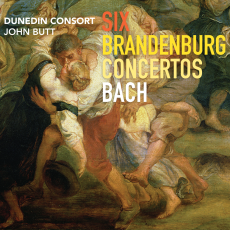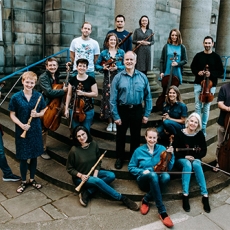Dunedin Consort - J.S. Bach: Six Brandenburg Concertos - Gramophone
Expertly stylish recordings of the six concertos Bach presented in neat copy to the Margrave of Brandenburg in March 1721 are two-a-penny but the Dunedin Consort offer more substantial style and bona fide expertise than most. John Butt's essay is an accessible commentary, narrated with a friendly authority that bespeaks his extensive academic and performing experience. Several choices reveal sincere reflection about how Bach might have expected such concertos to be played during his years of service at Cöthen, such as the use of low ‘Cammerton' pitch (A=392) and Werkmeister 111 temperament, and a decision to tune the viola da gamba and violone grosso to ‘Chorton' (ie up a third) in order to better exploit the sonorities of open strings. None of those principles would be quite so valuable if the music-making wasn't charismatic and refreshing. About half of the revolving team of 20 have participated in high-profile recordings before but the Dunedin players forge their own identity and capture what Butt praises as ‘carefree, joyous and spontaneous works'.
The pair of horns and three oboes in the opening of Concerto No 1 offer unforced conversational sparkle and the French-style fourth movement is an eloquent courtly dance (particularly the poignant trio for oboes and bassoon and compassionate strings in the Polacca). In Concerto No. 2 the cocertante quartet of David Blackadder (trumpet), Pamela Thorby (recorder), Alexandra Bellamy (oboe) and Cecelia Bernardini (violin) play with an airy fluidity, with graceful natural trumpet leaving room for recorder and oboe in the limelight.
The nine-part strings in the dazzling finale of Concerto No. 3 (which Butt takes at quite a lick) suggest the extravagant flair of Vivaldi's L'estro armonico. The final Presto of Concerto No. 4 is just one example of Bernardini's articulate bowing and relaxed phrasing in rapid passages, and cellist Jonathan Manson and harpsichordist Butt provide continuo with characterful joie de vivre. Butt plays a modern replica of a large Mietke harpsichord like one purchased by the Cöthen court in 1719 and his flexible performance of Bach's cadenza in Concerto No. 5 has a rare extemporised atmosphere of exuberant fun, the amusement of the orchestra is almost tangible in the closing ritornello. In contrast, the lower strings convey sublime melancholy in the 'Adagio ma non tanto' of Concerto No. 6.
Notwithstanding the distinguished Brandenburg discography, this set is nothing short of sensational.

